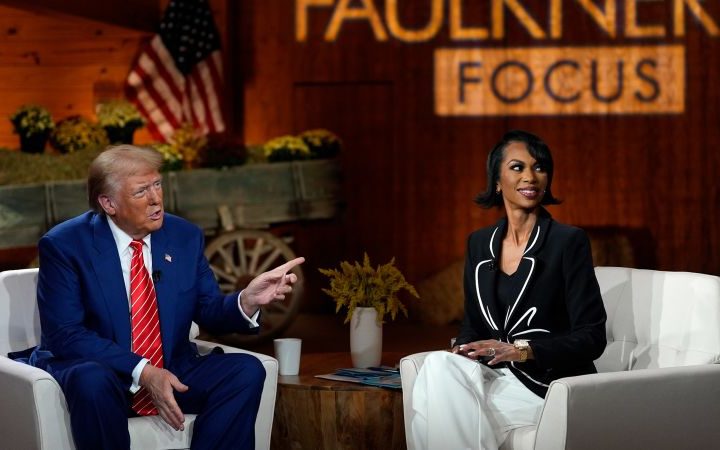In Republican David McCormick’s second bid for US Senate in Pennsylvania, he has rebranded himself as a Trumpian-hardliner on China, sounding the warning bells on US economic ties with China.
However, as the head of the world’s largest hedge fund, McCormick oversaw massive investments into US exchange traded Chinese companies and holdings, according to a CNN KFile review of the hedge fund’s holdings.
“We need to stop investing in China, and I know something about investing, put restrictions on portfolio investment or direct investment that aids the CCP or the Chinese military,” McCormick said on Hugh Hewitt’s podcast earlier this month.
At a House select committee on China hearing in September 2023, McCormick testified that while he was CEO of the billion-dollar hedge fund Bridgewater Associates, he held “deep reservations” about doing business with the country.
“As CEO, I had a fiduciary responsibility to our shareholders and our clients to maximize returns in line with their needs. I held deep reservations about Bridgewater’s exposure to the moral and patriotic hazards of doing business in China,” McCormick said in September 2023 before officially launching his campaign.
Under McCormick’s leadership from 2017 through 2021, Bridgewater Associates disclosed holdings in US exchange traded Chinese companies grew from $1.6 million in the second quarter of 2017 to $1.77 billion in the final quarter of 2021, according to filings to the US Securities and Exchange Commission reviewed by CNN’s KFile.
That amounts to a 108,000% increase in Chinese holdings over a five-year period. In 2017, Bridgewater reported investing in just one US exchange traded Chinese company; by the final quarter of 2021, its holdings included 47 Chinese companies.
During McCormick’s leadership at Bridgewater, at least one of the hedge fund’s invested companies had ties to human rights violations and abuses in the country and has been blacklisted by the US government. Another has partnered with a state-run company the US government prohibits US investments in.
McCormick’s about-turn on China policy comes as the Republican Party continues to distance itself from neoliberal foreign policy to become more hawkish on China and as he tries to shed his own pro-China image.
The West Point graduate and Treasury undersecretary for international affairs under the Bush administration once welcomed Chinese investment, saying in September 2007 that “when China succeeds, the United States succeeds.”
McCormick faced fierce criticism over his ties to China when he ran for the Republican nomination in 2022. He lost the primary to Republican Dr. Mehmet Oz by fewer than a thousand votes. Oz lost to Democrat John Fetterman, the state’s former lieutenant governor.
McCormick’s hedge fund also held an additional $779 million indirectly in Chinese companies through their investments in exchange traded funds. And Bridgewater launched a China-focused investment fund in 2018 for investors that grew to $6.15 billion by March 2022.
Elizabeth Gregory, a spokeswoman for the McCormick campaign, told CNN, “Dave’s views on China have been well documented for years, and he’s consistently spoken out – including against [Bridgewater founder] Ray Dalio – about the growing risk posed by the Chinese Communist Party and its rise.”
She added that McCormick has outlined a plan to confront China by securing supply chains, stopping US companies from funding the Chinese military or human right abuses, and holding the country responsible for “thievery” and abuses of US intellectual property.
The campaign also pointed to McCormick’s House testimony from September 2023 in which he directly called for Congress to restrict investment in sectors related to national security.
CNN reached out to Bridgewater Associates but did not receive a response.
McCormick resigned as CEO of Bridgewater Associates in early 2022 to run for office.
Among Bridgewater’s Chinese holdings at the time, at least one had ties to human rights abuses in the northwestern region of Xinjiang and another had ties to the Chinese military.
One of the subsidiaries of an energy company Bridgewater invested in was added to a US trade blacklist in June 2021 after they “were implicated in human rights violations and abuses in the implementation of China’s campaign of repression, mass arbitrary detention, forced labor…. against Uyghurs” and other Muslim minority groups in the northwestern region of Xinjiang.”
The company and China fiercely denied committing rights violations in the region.
After the blacklist, Bridgewater Associates more than doubled its shares in the parent company, increasing its investment by 1.7 times between the second quarter of 2021 and the final quarter of the year.
Bridgewater also bought shares in a credit services company one year after the US Commerce Department blacklisted its parent company in May 2020 for “supporting procurement of items for military end-use in China.”
Read the full article here







